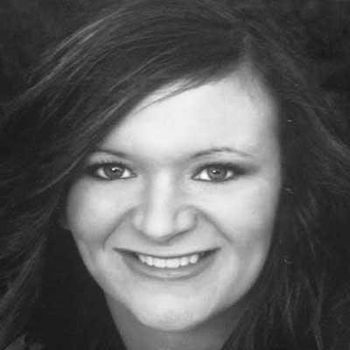Liberty University prof derides 'pretend gun-free zones' on campuses
A Liberty University professor has weighed in on the national conversation about concealed carry laws on college campuses, arguing that allowing students and professors to carry firearms would make them safer.
In a point-counterpoint op-ed on Liberty’s website, Biology Professor Daniel Howell argues that gun-free zones, on college campuses in particular, are breeding grounds for deranged shooters, and that the only sensible way to combat this issue is to give students the right to carry guns on campus.
Howell, who received his Ph. D. from Virginia Tech, recalls his memories from 1997 as a student at the university, ten years before a deranged student chained the doors and proceeded to shoot 32 faculty and students in what was once known as one of the worst massacres in U.S. history.
Howell suggests that gun-free zones such as Virginia Tech or a movie theater are “pretend gun-free zones,” arguing that “a sign on a window or a policy in a handbook does not create a gun-free zone, but it does create a helpless victim zone since rule-following people are apt to obey while law-breaking criminals are not.”
The Daily Signal reported in February that of the 54 mass shootings since 2002 in which the assailant’s intention was to kill a large number of people at random, 37 (69 percent) of those shootings took place in gun free zones. Conversely, 17 such shootings (31 percent) occurred in locations where firearms were legally allowed.
Of the 17 shootings that occurred at locations where citizens were allowed to carry guns, five (29 percent) ended when the gunman was either slowed down or stopped by a permitted gun holder.
“Some people feel safer with tough gun laws, but feeling safe and being safe are two different things,” Howell writes. “The correlation between restrictive gun laws and murder rates is clear: the more of the one, the higher the other.”
Howell concludes that most Americans are afraid that arming citizens will not put a stop to potential attacks, referencing a report issued by the Centers for Disease Control and Prevention that labels firearms as an “important crime deterrent.”
According to the CDC report, injury rates are lower among gun-using victims in comparison to victims without guns. In addition, the report states that the majority of firearms incidents do not result in fatality.
As an example, Howell points to the District of Columbia, which saw its murder rate rise astronomically after instituting a ban on handguns in 1976. When the ban was lifted in 2008 by the Supreme Court, however, the murder rate fell to historic lows.
“Good people with guns don’t create crime, they stop it,” Howell argues. “And no one is more law-abiding than the average concealed-carry person.”
Howell also observes that it is logistically impossible to ban all guns from college campuses without establishing “TSA-style searches.”
There are currently eight states that allow the presence of concealed weapons on public postsecondary campuses: Colorado, Idaho, Kansas, Mississippi, Oregon, Texas, Utah, and Wisconsin. It is legal for citizens to carry concealed weapons in all 50 states.
However, there are 18 states that ban concealed weapons on college campuses and 23 states that place the decision to ban concealed weapons in the hands of the university. Two states, Arkansas and Tennessee, allow certain faculty to carry weapons, but exclude students and the general public.
“Given this reality, our only effective recourse to prevent or minimize future mass shootings is to arm as many good people as possible,” Howell contends.
“While this piece was being prepared, the largest U.S. shooting massacre to date occurred in Orlando in a ‘gun-free’ nightclub,” he adds, pointing out that “the perpetrator, an Islamic extremist, was eventually killed by a police officer—a good guy with a gun.”
Follow the author of this article on Twitter: @morgan_walker95

